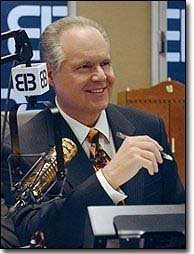Boys and Reading
 Are certain types of books really gender specific? Slate.com's Emily Bazelon seems to think so.
Are certain types of books really gender specific? Slate.com's Emily Bazelon seems to think so.Despite her liberally-tuned bravado, she's labeling with the same intensity as those she attempts to criticize. Her thrust here is, I think, that as emerging readers, boys are curious for information and girls are interested in narrative.
Now there's no flyover angle in this topic, but it's worth pursuing because any time a liberal or conservative puts forth a gender-based, developmentally-linked hypothesis, skepticisim is immediately called from the wings and invited to hold center stage.
But skepticism isn't even required here, because like many feature-oriented items in Slate these days, the central conceit is completely flawed and aimed at an information consumer who expects to devour unexamined discourse along with her ham on rye during the lunch hour.
So why the gender identification in this story? If you love literature and identify with it as a youth, you love it all, whether you admit it or not . . . Little House, Harriet the Spy, A Little Princess, All Creatures, etc. Those were the books late Boomers and Gen Xers had on the shelves, and that's what we all read read. Big deal. We also read tons of nonfiction about nations of the world, inventors, Ripley's Believe it or Not, Guinness Book of World Records, and Mad Magazine.
The gender-specific nature of book publishing came along as a result of marketing departments, not reader preferences. Who's reading Harry Potter these days? Everyone, of course, so why not a column about why girls are reading "boy" books like Potter, Snickett, and (going back to the beginning of this genre phenomenon) R.L. Stine's Goosebumps?
I will agree that the outstanding work of Richard Scarry, Stephen Biesty (Cross Sections), and David Macaulay (The Way Things Work) are particular to the male interest in that they tap into the inherently ordered, logical, curious nature of the emerging young boy's mind, but that shouldn't discount the need for that same mind to pursue narrative, and yes, even emotional, storylines. What's the Bill Murray line from Stripes — "All right, who cried at the end of Old Yellar?" That's just what boys do — gleefully give in to emotionally charged material when our young brains are ripe for any sort of attention or connection. Most of us loved that stuff, even if we'll never tell you about it.
 But back to the misguided Slate piece. It's classic, expected liberal drivel . . . the same kind of sanctimonious goop you see on the Today show every morning. It's an expectation of what the core reader base will identify with, even if that expectation is based only on innuendo. I do agree with Rush Limbaugh on a few points in life, and one of his core nuggets has always been that liberals at the top of the cultural or media ladder have little respect or regard for anyone else who isn't in that position, so they inevitably talk down to those perceptually below them. As a result, their discourse does not reflect what the rest of the nation thinks, but what they believe everyone else thinks . . . or should think. Usually that presumption results in pedantic, unrealistic, goopy presumption.
But back to the misguided Slate piece. It's classic, expected liberal drivel . . . the same kind of sanctimonious goop you see on the Today show every morning. It's an expectation of what the core reader base will identify with, even if that expectation is based only on innuendo. I do agree with Rush Limbaugh on a few points in life, and one of his core nuggets has always been that liberals at the top of the cultural or media ladder have little respect or regard for anyone else who isn't in that position, so they inevitably talk down to those perceptually below them. As a result, their discourse does not reflect what the rest of the nation thinks, but what they believe everyone else thinks . . . or should think. Usually that presumption results in pedantic, unrealistic, goopy presumption.Now, as contrast, take a look at a similar piece from the International Reading Association, which is a far more serious, fair-minded look at the issue of boys and literacy. Oh, and after you've read that, ask yourself, "Why didn't Slate's Emily Brazelon credit this piece as completely being the basis for her own (which it clearly was)?" But what's a little sourcing among friends? I'm sure she's enjoying her $250 check for her adaptation of the IRA article. Enjoy your dinner, Emily.

0 Comments:
Post a Comment
<< Home